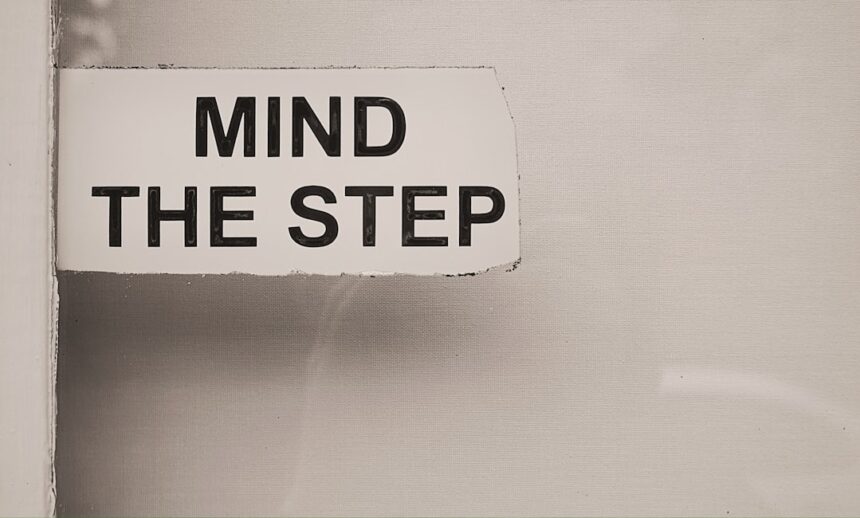To truly grasp the concept of the observer mindset, you must first recognize what it entails. This mindset is characterized by a heightened awareness of your thoughts, emotions, and behaviors, allowing you to step back and observe them without immediate judgment or reaction. Imagine yourself as a spectator in your own life, watching the unfolding events and your responses to them as if they were happening to someone else.
This perspective can provide clarity and insight, enabling you to understand your motivations and reactions more deeply. The observer mindset encourages you to detach from the chaos of daily life and view situations from a broader perspective. By doing so, you can identify patterns in your behavior and thought processes that may not be apparent when you are fully immersed in your experiences.
This detachment does not mean you become indifferent; rather, it allows you to engage with your life more thoughtfully and intentionally. You begin to see the interplay between your internal world and external circumstances, fostering a deeper understanding of yourself and your interactions with others.
Key Takeaways
- Understanding the Observer Mindset: The observer mindset involves stepping back from our thoughts and emotions to observe them without judgment.
- Benefits of Developing the Observer Mindset: Developing the observer mindset can lead to increased self-awareness, better decision-making, and reduced stress and anxiety.
- Recognizing the Role of Perception in Developing the Observer Mindset: Perception plays a crucial role in developing the observer mindset, as it allows us to see things from a different perspective.
- Techniques for Cultivating the Observer Mindset: Techniques such as meditation, journaling, and self-reflection can help cultivate the observer mindset.
- The Role of Mindfulness in Developing the Observer Mindset: Mindfulness practices can help in developing the observer mindset by increasing present-moment awareness and non-reactivity.
Benefits of Developing the Observer Mindset
Embracing the observer mindset can lead to numerous benefits that enhance both your personal and professional life. One of the most significant advantages is improved emotional regulation. When you learn to observe your thoughts and feelings without immediately reacting, you create space for more thoughtful responses.
This can help you manage stress, anxiety, and other overwhelming emotions more effectively, leading to a greater sense of calm and control in your life. Additionally, adopting this mindset can enhance your decision-making skills.
This clarity allows you to make choices based on logic rather than impulse or emotional reactivity. As a result, you may find that your decisions are more aligned with your long-term goals and values, ultimately leading to greater satisfaction in both personal and professional realms.
Recognizing the Role of Perception in Developing the Observer Mindset

Your perception plays a crucial role in shaping the observer mindset. The way you interpret events and experiences significantly influences how you respond to them. By becoming aware of your perceptions, you can begin to challenge any biases or assumptions that may cloud your judgment.
To develop this awareness, start by examining your habitual thought patterns. Are there recurring themes or beliefs that influence how you perceive the world?
By identifying these patterns, you can begin to question their validity and consider alternative perspectives. This process not only enhances your ability to observe but also fosters a more open-minded approach to life, enabling you to embrace new ideas and experiences without being hindered by preconceived notions.
Techniques for Cultivating the Observer Mindset
| Technique | Description |
|---|---|
| Mindfulness Meditation | Practicing focused attention on the present moment |
| Journaling | Recording thoughts and observations to increase self-awareness |
| Self-Reflection | Regularly reviewing thoughts, actions, and emotions |
| Body Scan | Systematically focusing on different parts of the body to increase awareness |
| Observation Exercises | Engaging in activities that require keen observation, such as nature walks or art appreciation |
There are several techniques you can employ to cultivate the observer mindset effectively. One powerful method is journaling. By writing down your thoughts and feelings regularly, you create an opportunity for reflection.
This practice allows you to step back from your experiences and analyze them more objectively. Over time, you may notice patterns in your writing that reveal insights about your behavior and thought processes. Another effective technique is meditation.
Engaging in mindfulness meditation encourages you to focus on the present moment while observing your thoughts without judgment. This practice helps train your mind to recognize when it is becoming reactive or overwhelmed, allowing you to return to a state of calm observation. As you incorporate meditation into your routine, you’ll likely find it easier to adopt the observer mindset in various aspects of your life.
The Role of Mindfulness in Developing the Observer Mindset
Mindfulness is a cornerstone of developing the observer mindset. It involves being fully present in the moment while maintaining an attitude of openness and curiosity toward your experiences. When you practice mindfulness, you learn to observe your thoughts and feelings without becoming entangled in them.
This detachment is essential for cultivating an observer mindset, as it allows you to see situations clearly without being clouded by emotional reactions. Incorporating mindfulness into your daily routine can be as simple as taking a few moments each day to focus on your breath or engage in mindful walking. These practices help ground you in the present moment and enhance your ability to observe without judgment.
As you become more attuned to your thoughts and feelings through mindfulness, you’ll find it easier to adopt an observer perspective in various situations, leading to greater self-awareness and emotional intelligence.
Overcoming Challenges in Developing the Observer Mindset

While developing the observer mindset offers numerous benefits, it is not without its challenges. One common obstacle is the tendency to become overly critical of yourself during the observation process. You may find yourself judging your thoughts or emotions harshly instead of simply observing them.
To overcome this challenge, practice self-compassion. Remind yourself that everyone experiences a range of thoughts and feelings; it’s part of being human. Another challenge is the difficulty of maintaining an observer perspective in high-stress situations.
When emotions run high, it can be easy to lose sight of the observer mindset and react impulsively. To combat this tendency, develop strategies for grounding yourself during stressful moments. Techniques such as deep breathing or taking a brief pause before responding can help you regain a sense of calm and clarity, allowing you to return to an observer perspective even in challenging circumstances.
Integrating the Observer Mindset into Daily Life
Integrating the observer mindset into your daily life requires intentionality and practice. Start by setting aside time each day for reflection. This could involve journaling about your experiences or simply taking a few moments to sit quietly and observe your thoughts without judgment.
By making this practice a regular part of your routine, you’ll gradually strengthen your ability to adopt an observer perspective throughout the day. Additionally, look for opportunities to practice observation in real-time situations. When engaging in conversations or facing challenges at work, consciously remind yourself to step back and observe rather than react immediately.
This shift in perspective can lead to more thoughtful interactions and decisions, ultimately enhancing both your personal relationships and professional effectiveness.
The Impact of the Observer Mindset on Personal Growth and Development
The observer mindset has a profound impact on personal growth and development. By fostering self-awareness through observation, you create a foundation for meaningful change in your life. As you become more attuned to your thoughts and behaviors, you’ll be better equipped to identify areas for improvement and set realistic goals for yourself.
Moreover, adopting this mindset encourages a growth-oriented approach to challenges. Instead of viewing setbacks as failures, you’ll learn to observe them as opportunities for learning and growth. This shift in perspective can empower you to embrace new experiences with curiosity rather than fear, ultimately leading to greater resilience and adaptability in the face of life’s challenges.
The Connection between the Observer Mindset and Emotional Intelligence
Emotional intelligence is closely linked to the observer mindset. By developing the ability to observe your emotions without judgment, you enhance your capacity for emotional regulation—a key component of emotional intelligence. This awareness allows you to respond more thoughtfully to both your own emotions and those of others, fostering healthier relationships and effective communication.
Furthermore, cultivating an observer mindset enables you to empathize with others more deeply. When you can step back from your own experiences and observe how others may be feeling or reacting, you’re better equipped to respond with compassion and understanding. This heightened empathy not only strengthens personal connections but also enhances collaboration in professional settings.
The Importance of Training and Practice in Developing the Observer Mindset
Developing the observer mindset is not an overnight process; it requires consistent training and practice. Just as athletes hone their skills through regular practice, so too must you cultivate this mindset through intentional effort over time. Engaging in mindfulness practices, journaling, or seeking feedback from trusted friends can all contribute to this ongoing development.
Consider setting specific goals for yourself related to cultivating the observer mindset. For example, aim to practice mindfulness for a certain number of minutes each day or commit to journaling several times a week. By tracking your progress and celebrating small victories along the way, you’ll reinforce your commitment to developing this valuable skill.
Applying the Observer Mindset in Professional and Personal Relationships
The observer mindset can significantly enhance both professional and personal relationships. In professional settings, adopting this perspective allows you to navigate conflicts with greater ease. Instead of reacting defensively during disagreements, you can step back and observe the situation objectively, leading to more constructive conversations and resolutions.
In personal relationships, practicing the observer mindset fosters deeper connections with others. By observing not only your own emotions but also those of your loved ones, you’re better equipped to respond with empathy and understanding. This approach encourages open communication and strengthens bonds, ultimately leading to healthier relationships built on mutual respect and support.
In conclusion, embracing the observer mindset is a transformative journey that requires dedication and practice but offers profound rewards in terms of self-awareness, emotional intelligence, and personal growth. By understanding its principles, recognizing its benefits, and employing practical techniques for cultivation, you can integrate this valuable perspective into every aspect of your life—leading not only to enhanced well-being but also richer connections with those around you.
In the journey of cultivating an observer mindset, it’s essential to explore various resources that offer insights into mindfulness and self-awareness. One such resource is an article available on Unplugged Psychology, which delves into the nuances of mental clarity and emotional regulation. This article provides valuable perspectives on how adopting an observer mindset can enhance one’s ability to navigate complex emotions and thoughts. For a deeper understanding, you can read more about these concepts by visiting the Unplugged Psychology website.
FAQs
What is the observer mindset?
The observer mindset is a state of awareness and perception that allows individuals to objectively observe and analyze their thoughts, emotions, and behaviors without judgment or attachment.
Why is training the observer mindset important?
Training the observer mindset is important because it helps individuals develop self-awareness, emotional intelligence, and the ability to make more conscious and intentional choices in their personal and professional lives.
How can one train the observer mindset?
Training the observer mindset involves practices such as mindfulness meditation, self-reflection, journaling, and seeking feedback from others. These practices help individuals cultivate the ability to observe their thoughts and emotions without getting caught up in them.
What are the benefits of having an observer mindset?
Having an observer mindset can lead to improved decision-making, better emotional regulation, increased empathy and understanding of others, and a greater sense of inner peace and well-being.
Can anyone develop an observer mindset?
Yes, anyone can develop an observer mindset with practice and dedication. It is a skill that can be cultivated over time through consistent effort and self-awareness exercises.



